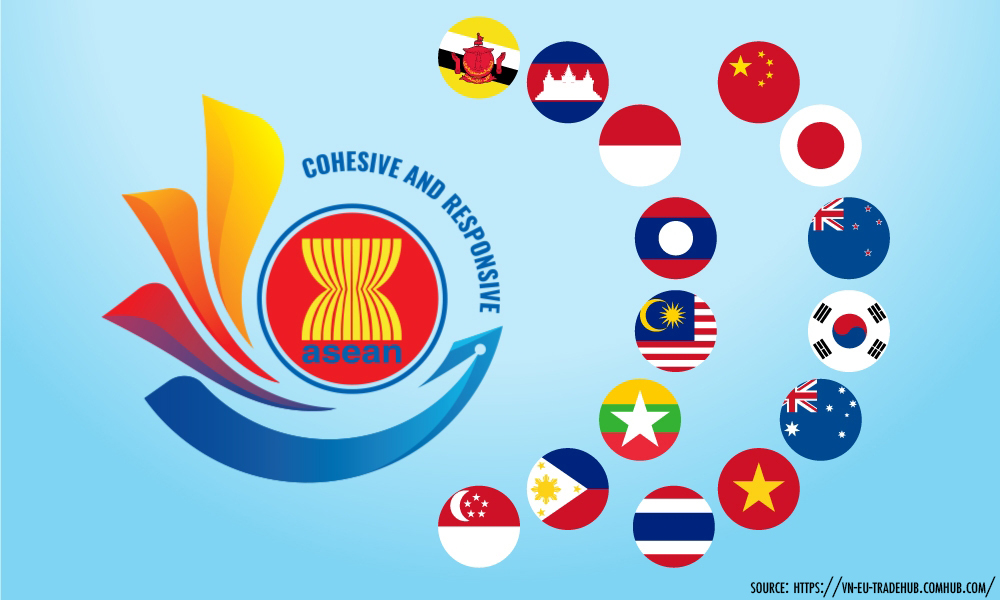Philippe Snel

How does this affect you?
In November 2020, the Regional Comprehensive Economic Partnership (RCEP) was signed. Just this November, the Association of Southeast Asian Nations (ASEAN) announced that the agreement will enter into force as of January 1, 2022.
The RCEP is a free trade agreement which will create the world’s largest trading bloc: The 15 Asia-Pacific countries that signed the agreement on November 15, 2020 represent nearly one third of the world’s population and 29% of the global GDP.
This free trade agreement will lower or eliminate tariffs on a broad range of goods and services (over 90% will be duty-free within the next 20 years) and establish rules on topics like investment, intellectual property, e-commerce, and competition.
Trade in goods
The trade in goods section (chapter 2) contains articles that govern the implementation of
commitments to achieve a high level of trade liberalization, including for example rules of origin (rules of origin will be unified), customs procedures (consistency and transparency), trade facilitation (chapter 4), and trade remedies (chapter 7).
Trade in services
This chapter contains rules on market access (chapter 8) with specific provisions on financial services, telecommunication, and professional services. The chapter also contains provisions on the temporary movement of natural persons (chapter 9).
Investment
The section on investment (chapter 10) contains rules on protection, liberalization, promotion, and facilitation of investments. It further address commonly-used investment standards such as most-favored-nation treatment, fair and equitable treatment, and just compensation.
Intellectual property
Notwithstanding different development levels of RCEP countries, the chapter focused on intellectual property (chapter 11) enhances intellectual property rights protection. Additionally, this section contains rules on trademarks, geographical indications, industrial designs, patents, genetic resources, traditional knowledge, and folklore.
E-commerce
This chapter (chapter 12) requires parties to adapt or maintain a legal framework for e-commerce development including protection of personal information, cyber security, promotion of cross-border e-commerce, and maintains limitations on imposition of duties for electronic transmissions.
Competition
Chapter 13 includes obligations for RCEP countries to adopt or maintain competition laws and regulations that proscribe anti-competitive activities.
Conclusion
This new free trade agreement offers much potential for new business opportunities, especially due to lower tariffs and improved market access for goods and services in the Asia-Pacific region. Companies should examine how the RCEP will affect them. If you want to know more, please feel free to reach out to us.


